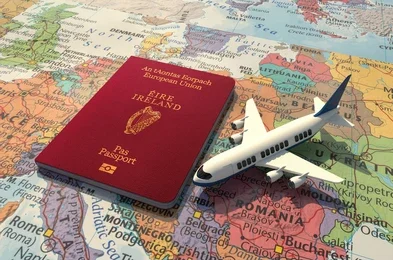Contact us :+91-70 335 335 70
- Monday - Saturday 10:00 am - 07:00 pm
- Third Floor, Plot No. 55, Sector 12-B, Dwarka, New Delhi, 110075



Ireland is a cosmopolitan nation drawing individuals from all over to live, work, and study here. This variety produces a dynamic and inclusive community in which many customs, languages, and cuisines coexist. You can discover the rich tapestry of world civilizations whether you are dining at an international restaurant, strolling through Dublin’s streets, or attending a cultural festival. Newcomers will find it simple to feel at home among the pleasant Irish people.
Where you live determines your cost of living in Ireland. While smaller towns and rural places are more reasonably priced, cities like Dublin are more costly—especially for rent. Students should normally allocate their budgets for food, transit, rent, and other everyday needs. While in smaller towns the rent is more inexpensive, in Dublin the monthly cost for a shared flat may be greater. Additionally adding to the expense of living are groceries, public transportation, and leisure activities; hence, proper budget planning is crucial.
Literary, artistic, musical, and dance forms abound in Irish culture. Popular among traditional Irish music and dancing are those found in bars and celebrations. With well-known authors from Ireland like James Joyce and W.B. Yeats, literature is rather important in Irish society. The kind and welcoming character of the Irish makes one feel at ease rather naturally. Ireland’s laid-back and community-oriented way of life emphasises family and social events rather strongly.
Climate Ireland boasts a moderate temperature with warm winters and cool summers. Given the regular rain, it’s wise to always have an umbrella or raincoat. The weather can be erratic; often sunshine and rainfall on the same day. Still, Ireland’s temperate temperature means it hardly ever feels too hot, which makes outdoor year-round exploration enjoyable. Ireland’s rich, green scenery has earned the moniker “The Emerald Isle” from the consistent rains.
Ireland boasts a top-notch educational system featuring several elite colleges and universities. Academic brilliance and creative teaching approaches abound at Irish institutions. Studying in Ireland can produce a degree with great value and worldwide recognition. The educational system gets students ready for successful careers by stressing critical thinking, creativity, and useful abilities. Excellent infrastructure, tools, and friendly surroundings help international students.
Trinity College Dublin, University College of Dublin, and National University of Ireland Galway are among the several prestigious universities Ireland claims. Among numerous fields like business, arts and sciences, science, and technology, these universities provide a wide range of courses
These colleges provide a broad spectrum of courses in many disciplines including business, humanities, science, and technology. Their amenities are first-rate: they include contemporary libraries, research labs, and student support systems. Irish colleges often include active campus communities with many of groups, clubs, and extracurricular activities.
Usually up to twenty hours a week during term time and full-time during holidays, students in Ireland can work part-time while they study. This enables students to help themselves financially and acquire important work experience. Particularly in areas like technology, healthcare, and finance, there are chances to remain and work in Ireland following graduation. Ireland’s vibrant businesses and amicable work atmosphere appeal to overseas graduates wishing to launch their careers. Getting a Post Study Work Visa lets graduates work in Ireland for up to two years, therefore accumulating further experience and maybe providing long-term settlement.
As with many other countries in Europe, standard undergraduate degrees in Ireland last for three or four years, with a master’s being the natural progression if desired.
Ireland is home to institutions that specialize in certain subjects, including business schools, medical universities, and engineering universities. Whether you’re looking to study for a bachelor’s, master’s, MBA, or PhD, We can help you find the perfect place to study abroad.
Irish tuition fees for non-EU students can be between €15,000 and €43,000 a year, which is similar to the UK.
Living costs in Ireland are also similar to the UK and are known for being on the higher side of Europe. In general, you will pay more if you live in Dublin than anywhere else in the country. Estimates suggest the average student needs between €8,000 - €13,000 to live on each year – excluding tuition fees.
